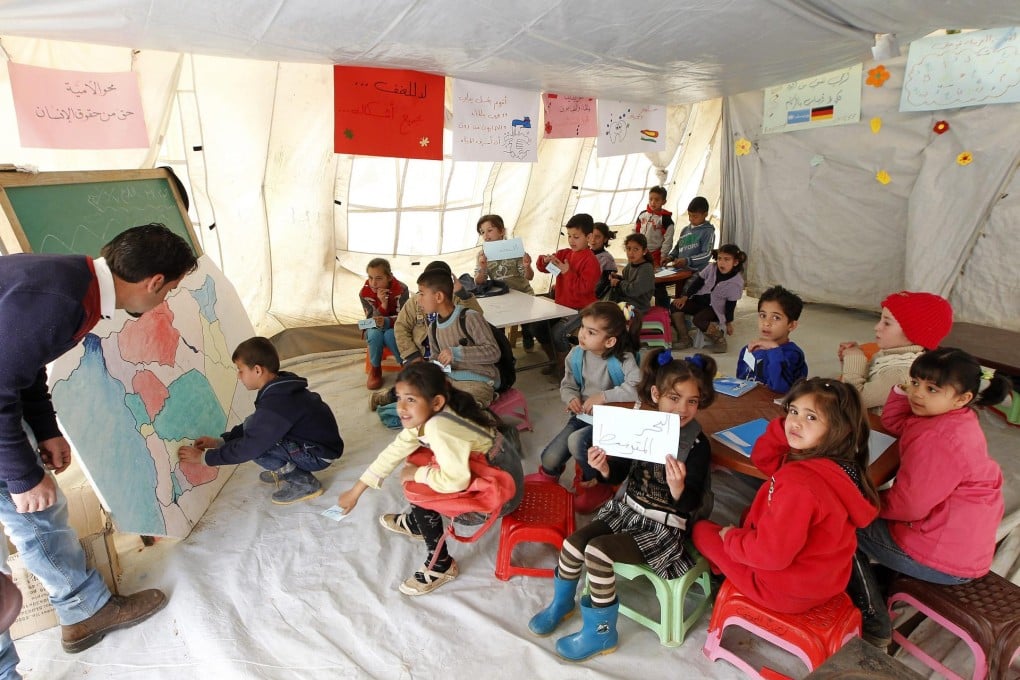Children's education becomes a casualty of war, report finds
Eleven-year-old Karim can barely lift the axe, but he's putting his family first. "I can't go to school as my family needs to eat, so I work with my father and my brother instead," says Karim, who lives in a camp in northern Syria near the Turkish border. In nearby Lebanon, in a makeshift camp in the agricultural hinterland of the Bekaa Valley, another boy chops wood under the watchful eye of his grandmother. In harvest season, many boys and girls in the camp work at farms for as little as HK$15 a day, says Abu Mohammed, the camp warden.

Eleven-year-old Karim can barely lift the axe, but he's putting his family first. "I can't go to school as my family needs to eat, so I work with my father and my brother instead," says Karim, who lives in a camp in northern Syria near the Turkish border.
In nearby Lebanon, in a makeshift camp in the agricultural hinterland of the Bekaa Valley, another boy chops wood under the watchful eye of his grandmother. In harvest season, many boys and girls in the camp work at farms for as little as HK$15 a day, says Abu Mohammed, the camp warden.
Only 70 of about 300 children here go to nearby tent schools run by Beyond Association, a humanitarian agency based in Beirut, Lebanon.
Karim, from Hama, and the Bekaa Valley's kids are among about 2.8 million Syrian children who are out of school. Years of conflict, bias and displacement have scarred their childhood.
Enrolment rates in Syria have fallen to an average of half of what they were before the war, when nearly all Syrian children went to school, according to a new report by Save the Children.
In areas such as Aleppo, which have been devastated by nearly three years of war, enrolment is down to 6 per cent, and nearly a half-million refugee children are out of school. In Lebanon, which hosts the most refugees, four of five children do not have access to school.